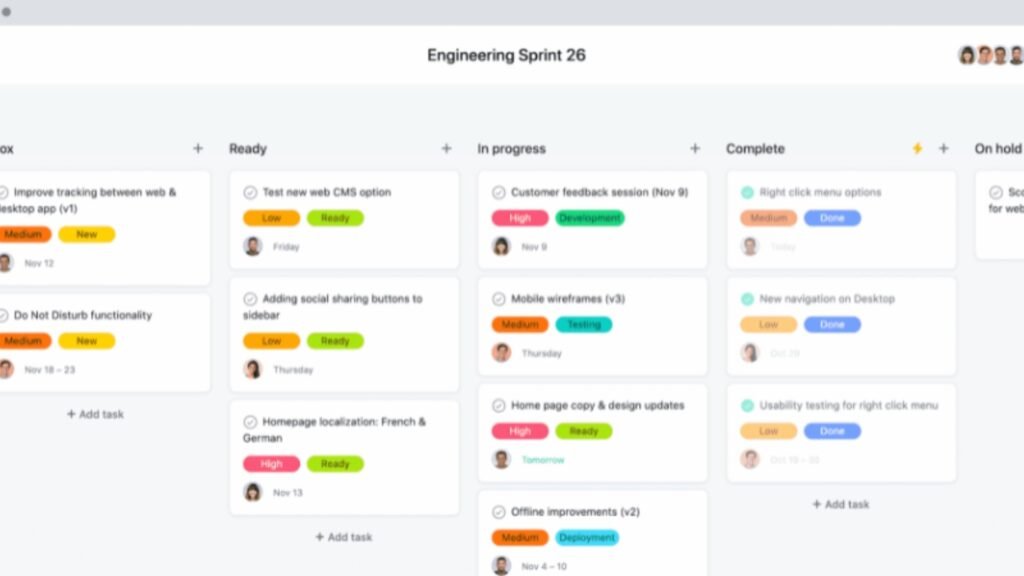When managing a team, choosing the right project management software is crucial. The best project management software for teams can streamline communication, enhance productivity, and ensure that everyone stays on track. In this article, we’ll guide you through some of the top options available and how they can benefit your team.
Why Choose the Best Project Management Software for Teams?
Selecting the best project management software for teams helps in organizing tasks, tracking progress, and managing deadlines effectively. It enables team members to collaborate seamlessly, share resources, and update project statuses in real-time. With the right tool, teams can avoid confusion, reduce miscommunication, and ensure that every project milestone is met efficiently.

Key Features to Look for in Project Management Software
When evaluating project management software for teams, look for these essential features:
1. Task Management
Effective task management is at the heart of the best project management software for teams. This feature allows you to assign tasks, set deadlines, and track progress. A good tool will offer visual task boards or lists, making it easy to see what needs to be done and by whom.
2. Collaboration Tools
Collaboration is vital for any team project. The best software will include features like chat, file sharing, and discussion threads. These tools help team members communicate quickly and keep all project-related conversations in one place.
3. Project Planning and Scheduling
Planning and scheduling are critical for successful project management. Look for software that offers Gantt charts, calendars, and timelines. These tools help in mapping out project phases, setting deadlines, and ensuring that milestones are achieved on time.
4. Resource Management
Resource management features are essential for keeping track of team availability and workload. The best project management software for teams will allow you to allocate resources efficiently, ensuring that no team member is overburdened and that resources are used effectively.
5. Reporting and Analytics
Data-driven decisions are easier with robust reporting and analytics. The software should provide insights into project performance, team productivity, and task completion rates. This information helps in making informed decisions and identifying areas for improvement.
Top Project Management Software for Teams
1. Asana
Asana is a popular choice for project management because of its intuitive interface and powerful features. It offers task management, project tracking, and collaboration tools all in one place. Teams can create projects, assign tasks, set deadlines, and track progress with ease. Asana’s visual project boards and reporting tools make it a great option for managing complex projects.
2. Trello
Trello uses a card-based system to help teams organize tasks and projects visually. Each card represents a task, and you can move them through various stages of completion. Trello is known for its simplicity and flexibility, making it ideal for teams looking for a straightforward project management tool.
3. Monday.com
Monday.com is a versatile project management tool that offers a range of features for managing tasks, projects, and workflows. It provides customizable workflows, visual project boards, and collaboration tools. Monday.com is highly flexible, allowing teams to tailor the software to their specific needs.
4. Microsoft Teams
Microsoft Teams combines project management with communication and collaboration features. It integrates seamlessly with other Microsoft Office tools, making it a great choice for teams already using Microsoft products. Teams offers chat, file sharing, task management, and project tracking in one platform.
5. Basecamp
Basecamp is known for its simplicity and ease of use. It includes to-do lists, file sharing, messaging, and scheduling tools. Basecamp’s straightforward approach makes it an excellent choice for teams looking for an uncomplicated project management solution.
How to Choose the Best Project Management Software for Your Team
1. Assess Your Needs
Start by assessing your team’s needs and project requirements. Determine which features are essential and how your team works best. For example, if your team relies heavily on visual project tracking, you might prefer software with strong visual tools.
2. Consider Integration
Ensure the project management software integrates well with other tools your team uses, such as email, calendar applications, or CRM systems. Integration can streamline workflows and reduce the need for manual data entry.
3. Evaluate User-Friendliness
Choose software that is easy to use and adopt. A user-friendly interface will help your team get up to speed quickly and reduce the learning curve. Look for tools with intuitive designs and helpful tutorials.
4. Check for Scalability
Select software that can grow with your team. Whether you’re a small team or a large organization, the best project management software should be able to scale according to your needs. Ensure it offers features that will be useful as your projects and team expand.
Conclusion
Finding the best project management software for teams can greatly enhance productivity and collaboration. By considering your team’s needs and evaluating features such as task management, collaboration tools, and resource management, you can choose a tool that fits your workflow perfectly. Implementing the right software will help keep projects on track and ensure that your team works more efficiently.











